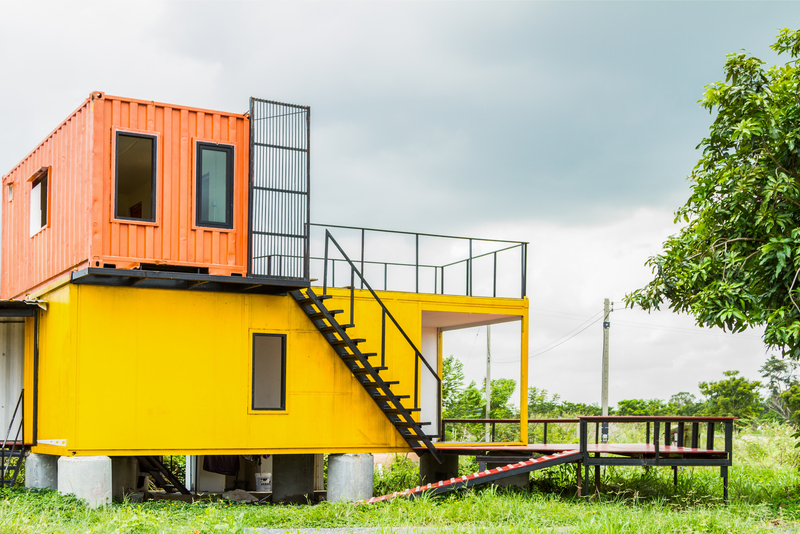As the world becomes more environmentally conscious, the concept of sustainable living is gaining traction. More homeowners are considering their environmental impact and seeking ways to update their homes for eco-friendliness. This comprehensive guide will explore various methods to enhance sustainability in your dwelling, ensuring that your home is not only comfortable but also kind to the planet.
Why is Sustainable Living Important?
Sustainable living, in essence, means making choices that reduce our environmental footprint. It involves using resources responsibly and ensuring that what we consume doesn't compromise the planet for future generations. The significance of this lifestyle choice can be seen in its positive impact on the environment, economy, and personal well-being.
- Environmental impact: By reducing waste and energy consumption, we help preserve natural resources and decrease pollution.
- Economic benefits: Eco-friendly homes often have lower utility bills and can increase property value.
- Health improvements: A greener home environment can lead to better air quality and less exposure to harmful chemicals.

Energy-Efficient Upgrades
One of the most impactful ways to make your home more sustainable is by improving its energy efficiency. Here are some strategies to consider:
Install Solar Panels
Solar energy is a renewable resource that can significantly reduce your reliance on non-renewable energy sources. Installing solar panels on your roof can convert sunlight into electricity, reducing your utility bills and minimizing your carbon footprint.
The cost of solar panels has decreased considerably in recent years, making this a more accessible option for many homeowners.
Upgrade Your Insulation
A well-insulated home maintains its temperature more effectively, leading to less energy consumption. Consider updating your insulation in walls, attics, and basements to retain heat during winter and keep the house cool in summer.
LED Lighting
Replacing traditional bulbs with LED lights is a simple yet effective way to reduce energy usage. LEDs are more efficient and have a longer lifespan, which means fewer replacements and less waste.
Water Conservation Techniques
Conserving water is crucial for sustainable living. Implementing water-saving fixtures and practices can significantly reduce water consumption in your home.
Low-Flow Fixtures
Install low-flow fixtures such as faucets, showerheads, and toilets to reduce water usage without sacrificing performance. These fixtures can decrease water flow by up to 60%.
Smart Watering Systems
If you have a garden, consider installing a smart irrigation system. These systems adjust watering schedules based on weather patterns, ensuring you're using water efficiently.
Eco-Friendly Materials
When updating your home, choose materials that are sustainable, recyclable, or have a low environmental impact.
Reclaimed Wood
Incorporating reclaimed wood into your home design not only adds character but also reduces the demand for new timber, minimizing deforestation.
Bamboo Flooring
Bamboo is a fast-growing, renewable resource that serves as an eco-friendly alternative to traditional hardwood flooring. Its durability and elegance make it a popular choice for sustainable home renovations.
Recycled Materials
Utilize building materials made from recycled content, such as countertops from recycled glass or tiles made from recycled ceramics, to lower your home's environmental impact.
Sustainable Interior Design
Your home's interior contributes to its overall sustainability. Here are some tips to create an eco-friendly interior:
Green Paint Options
Traditional paints can emit volatile organic compounds (VOCs), which are harmful to both the environment and your health. Opt for low-VOC or VOC-free paints to improve indoor air quality and reduce pollutants.
Sustainable Furniture
When choosing furniture, look for pieces made from sustainable materials or those that have been certified by environmental organizations. Buying second-hand or vintage furniture can also be a sustainable option, as it prevents new resource consumption.
Adopt a Zero-Waste Mindset
A zero-waste lifestyle focuses on minimizing waste by reusing, recycling, and composting. Implement these practices in your home to support sustainable living:
Efficient Recycling
Set up a comprehensive recycling system at home with clearly labeled bins for paper, plastics, glass, and metals to encourage proper sorting. Be aware of local recycling guidelines to ensure your efforts are effective.
Start Composting
Composting is a natural process that converts organic waste like food scraps into a valuable soil amendment. Composting reduces landfill waste and provides nutrient-rich matter for your garden.
Reusable Products
Switch to reusable products, such as cloth towels instead of paper ones, reusable shopping bags, and rechargeable batteries, to further reduce waste.

The Role of Smart Technology
Smart technology can significantly enhance your home's eco-friendliness by optimizing energy and resource usage.
Smart Thermostats
Smart thermostats learn your schedule and preferences, adjusting heating and cooling systems to be more efficient. This results in energy savings and increased comfort.
Home Automation Systems
Consider implementing automation systems that manage lighting, appliances, and security, all adjustable via smartphone apps. These systems can help reduce energy waste and improve your home's efficiency.
Conclusion
Updating your home for sustainable living involves thoughtful planning and investment. While some changes may require an upfront cost, the long-term benefits for the environment and your budget make them worthwhile. By incorporating energy-efficient upgrades, water conservation techniques, eco-friendly materials, and zero-waste practices, you can significantly reduce your environmental footprint. Embracing smart technology can further enhance your home's sustainability, paving the way for a future where comfort and eco-friendliness coexist. Start your journey towards a sustainable home today and make a positive impact on the planet for generations to come.